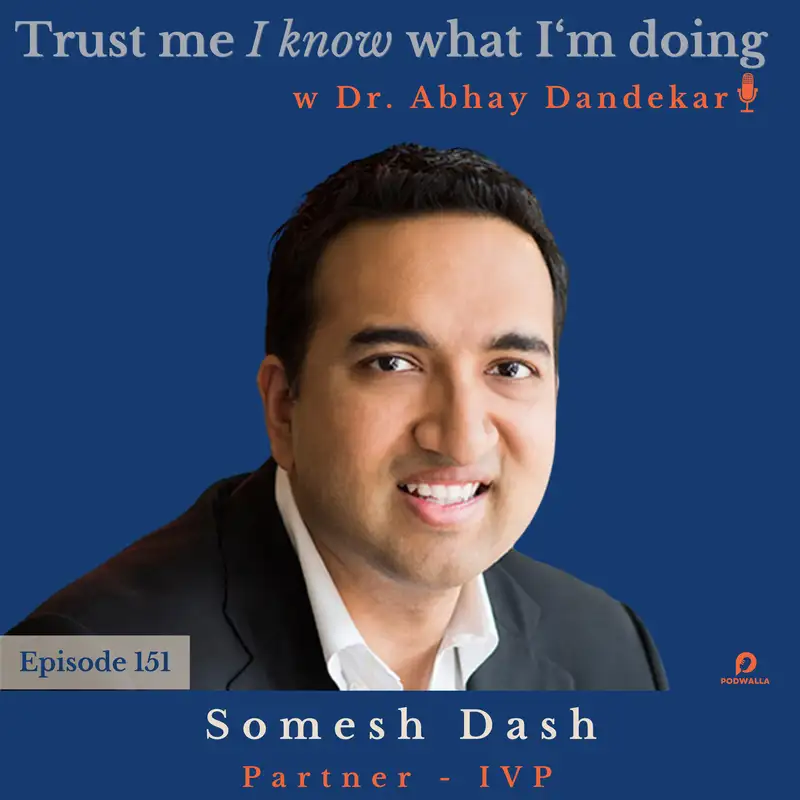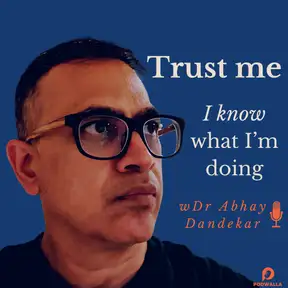Somesh Dash...on life as a venture capitalist
Download MP3Introduction
Hey everyone, thanks again for listening, sharing, rating, and downloading the podcast. If you’re enjoying these, I hope you can share a kind review and follow us on social media @drabhaydandekar. So this past week saw a fairly acute event in the US banking industry with the collapse of Silicon Valley Bank, certainly quite important in the startup and venture ecosystems, but also with so many ripple effects and global and local tethers. I’ve been thinking a lot about how communities ebb and flow, how they support each other and stay resilient, and how so many creative tensions are always at play for businesses at all stages - especially related to the identities, financial drivers, policies, and relationships that often govern and guide innovators, investors, and leaders in every phase of their careers. So it was actually a great time to catch up with someone who has a front row seat to this in Somesh Dash, a partner at Institutional Venture Partners or IVP, focusing on later-stage venture capital and growth equity investments, with investments in a who’s who of companies like Dropbox, Twitter, Coinbase, Discord, Netflix, Uber, and Snap. Somesh grew up in the Bay Area, after his parents immigrated from Odisha, with deep roots culturally, as his grandmother was the late Manorama Mohapatra, a social worker, journalist and editor at the Odia newspaper the Samaj. Somesh went to Cal and Stanford to study business, and has spent nearly the past 25 years learning and succeeding in Silicon Valley, developing relationships with founders and growing companies, serving on many boards, and building community wherever he goes. We caught up for a broad conversation about the intersections of his personal and professional experiences, but we started by chatting about how to breakdown, digest….and learn from the Silicon Valley Bank collapse…
Conclusion
Thanks again Somesh, and as today is the vernal equinox and the sun starts making its way north, and that means the compost bin at my house is starting to get more active. Cutting your food waste can reduce your carbon footprint by up to 300 kilograms of CO2equivalents per year, so use or donate what you buy and compost the rest. Till next time, I’m Abhay Dandekar.

